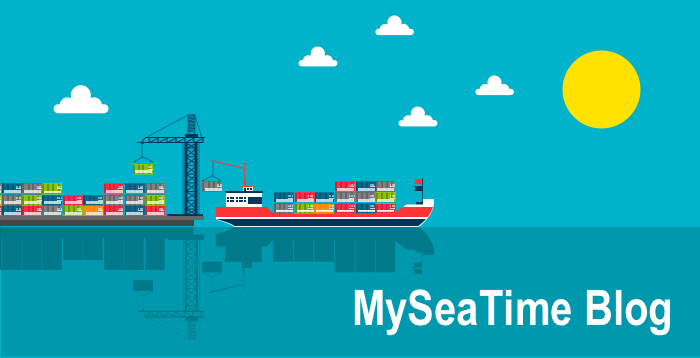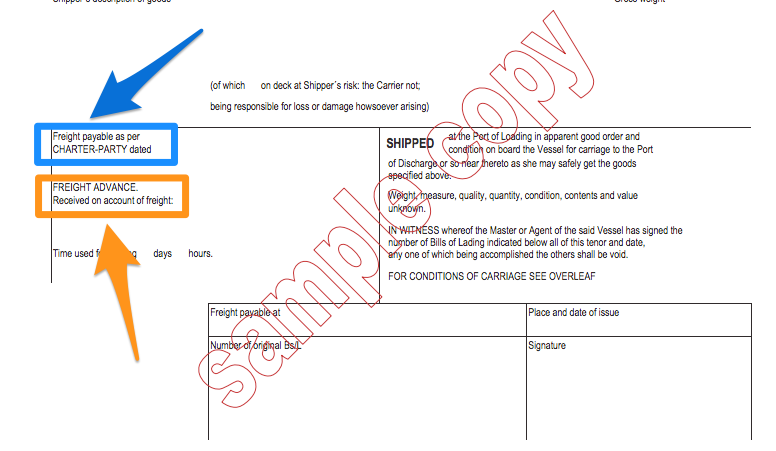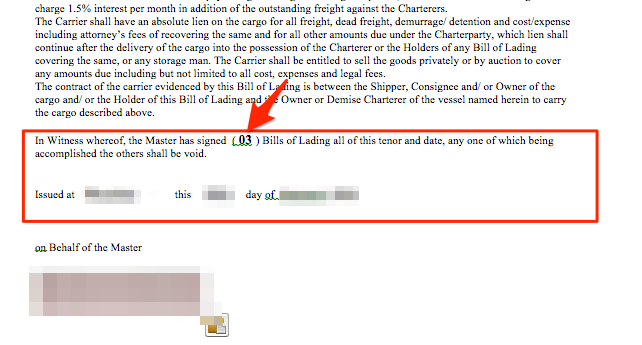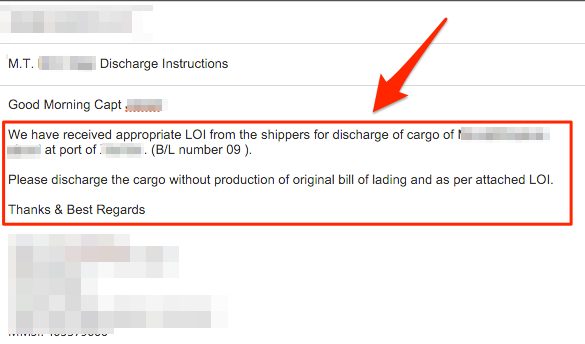If you ask me to name one document that is most important in shipping trade, I would name it as Bill of Lading. Banks do not issue funds, if the bill of lading is not clean. Carrier do not release the cargo if they do not receive bill of lading. And carrier cannot escape from claim of liability for cargo damage against clean bill of lading. The commercial aspect of shipping trade revolves around bill of lading. It is thus important for Masters to be aware of all the situations they can be subjected to and how they should deal with such situations.
I am covering these in 3 sections
- Issuing letter of authorisations to agents for signing bill of ladings
- Master signing bill of ladings, And
- Dealing with illegal requests
Lets dive in.
1. Issuing Letter of Authorisation to agents for signing bill of ladings
It is usual nowadays for the agents to sign bill of lading on Master’s behalf. There are few reasons why agent’s are asked to sign bill of ladings on master’s behalf. These can be
1) Bill of lading quantity not ready before vessel’s departure. This is particularly the case where EDP (Early departure procedure) is excercised. One such example is loading of crude oil in the port of Rastanura where EDP is common and vessel has to sail minutes after completion of cargo. This is also common where terminal takes more time for calculating shore figure loaded on board.
2) Terms and conditions for the bill of lading not yet finalised. This can happen if the format of the bill of lading is not yet agreed between the ship owners and the shipper (or shipper’s charterers). While they may still be communicating on the format of the bill of ladings, owners can instruct the agent to sign bill of lading on Master’s behalf.
3) The break-up of quantities not yet finalised. Sometimes the break up quantities for a commingled cargo is not finalised. In such case charterers may request owners to have the bill of ladings signed later by agent on behalf of master.
Whatever the reason, Master must receive explicit instructions from the owners about who will sign the bill of lading. If the agent has to sign bill of ladings on master’s behalf, he would need master’s authorisation to sign the bill of ladings. In such case, some agents may bring their own format of “Letter of authorisation” or they can ask master to draft one. In both the cases, Master must ensure that the letter of authorisation has all the element to safegaurd the interests of the vessel and the owners. The checks to be considered before issuing such authorisation can be
1) The LOA should highlight the fact that “bill of lading should be signed in strict accordance with the mate’s receipt”. And while we put this in LOA, it is prudent to double check for correctness of details in Mate’s receipt.
2) LOA should also instruct the agent to send the draft copy of the B/L to the owners for their approval before signing it.
3) LOA should instruct the agent to sign the bill of lading in strict compliance with the terms of the relevant charter party.
4) LOA should give as much detail to the cargo as possible. Each bill of lading to be signed by agent would require a different LOA. If the break up quantities are not finalised by the charterers, Master may require to issue a common LOA for each grade and later issue LOA with split quanities.
Master should be more cautious with the letter of authorisations if the agent signing the bill of lading is not appointed by the owners.
2. Master Signing bill of ladings
If Master has to sign the bill of lading, there are few things he should be aware of and conduct himself in a certain way.
1. Signing incomplete bill of ladings: In ports where EDP (early departure proceudres) is involved, shipper may present a blank or incomplete bill of lading for master to sign. No matter what, these should never be signed.
2. Format of bill of lading: The first thing for the Master to check is if the correct form for the bill of ladings is used. There are different kind of forms in use in shipping industry. These could range from the standard form from different shipping agencies, P&I club or shipping bodies. Or these could be a form that is formated by the ship owner to suit their requirement. Master must clarify with the ship owners as to which form is in use. One way for Masters to do this to ask the owners to send him the draft copy of the final bill of lading that he will be signing. Draft copy would have all the details of final bill of ladings inserted in it except the cargo quantities. Once the Master has the draft bill of lading, he can just compare same with final bill of lading before signing.
3. Date of Loading: Date of loading might look a small thing but wrong date on bill of lading can have major implications. Date of loading should be the actual date on which cargo was loaded on board. If the loading took more than one day, the date of completion of cargo should be inserted. If previous or post date is inserted into the bill of lading, shipowner might be at risk of claims from cargo interests. That is because the value of the cargo varies each day. Cargo buyer may have to pay more or less amount to seller depending upon the change in cargo price for that day. Whatever the change, someone (Buyer or seller of the cargo) will be at loss and they would pass this loss to the carrier. Even P&I clubs do not entertain these claims and these would finally be out of pocket expenses for the owners.
4. Correct Cargo quantity: Correct cargo quantity is most important information in the bill of lading. This is the information that is in direct control of master and his crew. If the vessel has received lesser quantity than the bill of lading quantity, Master should refrain from signing the bill of lading, even if terminal is ready to sign letter of descripency or letter of protest for difference in quantities. Master should follow the guidance provided in SMS manuals of the company or the charter party for the instructions to deal with such situations. Usually, charter party instruct the Masters to sign bill of ladings if difference in quantities is less than 0.3%. If the difference is more than 0.3%, master should refrain from signing the bill of lading and call P&I club after consulting the ship owners.
5. Freight Prepaid: There are usually one of these two statements regarding freight that would be bill of ladings. “Freight Prepaid” or “Freight payable as per terms and conditions of relevant charter party”. Clause “freight prepaid” implies that carrier has already received the freight. Master must never sign bill of ladings with the clause “freight prepaid” without express permission from the shipowners. This is because of obvious reason that if the freight is not paid yet, you do not want to sign a legal document that states otherwise.
3. Dealing with Illegal requests
A Master in his career can come across number of different kind of pressures to sign a bill of lading that he is not suppose to sign. I personally have come across to some of these. Let us see what these requests can be
1) Request to sign bill of lading with ship shore quantity difference.
Terminal may request master to sign bill of lading showing more loaded quantity than ship’s figure. The terminal may ask the master to issue letter of protest for discrepancies in quantities and sign the bill of ladings. The master may find himself under pressure for delays and terminal manager may on board with a letter of protest stating all delays will be on ship’s account. Another one, terminal demanding the vessel to leave berth within three hours of completion of cargo. Whatever the case, Master must not come under pressure to sign bill of lading which he thinks he should not sign. Generally, Master can sign bill of lading if the ship shore quantity difference is lesser than 0.3%. If the difference is more than 0.3%, master should request for P&I attendance and must never sign bill of lading unless matter has been sorted out.
2) Request to sign blank or incomplete bill of ladings
In one sentence, the request must be denied. We have discussed earlier in this blog , the possible reasons for this request. In most cases the reason for this request is insufficient data due to EDP. Master should inform the owners and charterers if any such bill of lading is presented to him for signing.
3) Request to issue clean bill of lading
Shipper may request the master to issue clean bill of lading with a logic that clean bill of lading is required for letter of credit from the bank. Though true, but that is a problem shipper has to deal with and master must only sign the bill of lading which describes the actual condition of the cargo. Shipper may propose to indemnify master and owners of any consequences because of it. Master must resist from any of such pressures as there are huge risks involved in this. It does not matter if any indemnity letter was issued to master. If master issues a clean bill of lading despite inaccuracies, it will be assumed that cargo was loaded in apparent good condition. Owners would have little to defend for any cargo claims arising because of inaccurate bill of lading if clean bill of lading was issued by the master.
4) Request to retain an original bill of lading on board
Shipper may request to keep one or more than one original bill of lading on board and carry same to discharge port. Shippers does this to avoid the possibility of original bill of lading not arriving at discharge port before vessel’s arrival. This is particularly the case with short voyage where it is impossible for shipper to provide the original bill of lading at discharge port. Master usually signs three original bill of ladings and few of the non-negotiable copies of bill of ladings. The number of original bill of ladings signed by master is mentioned on each bill of ladings, usually on the bottom of front cover. None of these original bill of ladings can be carried on board to discharge port.
If requested by shipper, Master must deny any such request as their are risks involved with this. The main risk involved is the change of ownership of the cargo while the vessel is enroute. If there has been change of title of the cargo, this would reflect on the two bill of ladings but not on the bill of lading carried by th master onboard. So the bill of lading carried by the master may not be showing correct details to whom the cargo belongs. The ship owner will have absolutely no defense in wrongful delivery of the cargo in this case.
5) Request to discharge cargo at different destination to that in bill of lading
If a request is made to proceed to a port different than that mentioned in bill of lading, master must inform the ship owners. Apart from that he must proceed only when ship owners have safeguarded their interest. There are two risks involved in such a request. first, one of the original being presented at port of discharge stated in bill of lading. Second, claim for deviation to another port. Ship owners has the arrangements to deal with such requests, such as they can ask the shipper to re-issue the bill of lading after destroying the previous one. Whatever the arrangements,
6) Request to discharge the cargo without production of original bill of lading
The practice of discharging the cargo against a LOI (Letter of indemnity) is so common specially in tanker trade that this can trick masters. Masters must ensure that direct request from charterers/shipper to discharge the cargo against such LOI should not be considered. Master must receive such instructions from the ship owners. If vessel is on time charter, charterer would receive the LOI from shipper or sub charterer and instruct master to discharge the cargo. These instructions might look something like this
In these cases, sometimes owners need LOI in their own format. Also such LOI from shipper or sub-charterer is indemnifying the charterers but not the owners. Owners are not under any contractual obligations with sub-charterers and such LOI might not be enough to protect owner’s interest. So in this case owners might need a separate LOI in their format from the charterers (time) of the vessel.
Share this:

About Capt Rajeev Jassal
Capt. Rajeev Jassal has sailed for over 24 years mainly on crude oil, product and chemical tankers. He holds MBA in shipping & Logistics degree from London. He has done extensive research on quantitatively measuring Safety culture onboard and safety climate ashore which he believes is the most important element for safer shipping.
Search Blog
23 Comments


On tanker ships, and about date on Bill of ladings, the following questions arise as when is to consider the correct date of the bill of Lading. When the valves in the manifold are shut? when shore and ship quantities are reconciled? when hoses are disconnected?, when the time of completion of loading is agreed and reported in the SOF?

It is loading completion time & date as reported in SOF.

JUST TO CLARIFY IF A VESSEL IS IN TIME CHARTERS, AND HE HAS BEEN ASKED TO DISCHARGE CARGO ON PRESENTATION OF LOI,THEN HE MUST RECEIVE 2 LOI's, One from Shipper or Sub charterer indemnifying the time charterer and the other one from Time charter himself to indemnify the owners??

For the shipOwners/Master - LOI from the time charterers would be sufficient but in order to protect them selves (time charterers), always get a LOI from their Voyage charterers. In case any claim arises, time charterers can protect themselves back to back. As in practice, ShipOwners is having contract with the time charterers and time charterers must indemnify the ShipOwners. Since voyage charterers is not a party to the contract with the Owners, normally voyage charterers will not give any LOI to the Owners of the vessel

Both points are very relevant and accurate.

Would it be acceptable to re cut BL's up partial discharge reload for tanker business. Assuming the reload makes a material change in the over all cargo

If the partial cargo is to be discharged at some port, usually the B/L will be separated in such as way that one B/L does not have the cargo for two or more ports. So if the cargo of B/L number 6 is to be dischraged at Antwerp and rotterdam, then B/L 6A can be for Antwerp and B/L 6B can be for rotterdam. Now if after dischraging cargo as per B/L 6A, more cargo is to be loaded in B/L 6B to make it as different comodity, B/L 6B need to be cancelled and returned to the ship owners and a new B/L need to be drawn covering the cominglled (& new commodity) cargo.

what would the master do if he was asked to carry B/L

Sir,can master authorise Chief officer to sign the B/L in any case, the same way he authorises agent in case of EDP?? If No,then why?This question asked for master's orals in Spore.

mr sukhchain singh read question carefully and then answered just dont talk like child

Really I googled everywhere I couldn't get explanation any where hats off sir

Hello Captain, A chemical tanker has load ulsd and master has signed B/L cllean on board. The draft survey figure at port of loading show a difference of -20 MTS and draft survey figure in the port of discharging show a difference of -18 MTS. The B/L quantity is 20000MTS. Which are the measuring to be taken by master at loading and discharging port?

Very skilled and knowledgable replies indeed!. One question; Are there any examples on LOI's being enforced at arbitration or in a Court of Law?. Or is the only threat loss of reputation for chrts ?

Is there any contradiction if Bill of Lading stated wording "Clean on board" and Master's remarks simultaniously. Is there any potential problem to carrier? (Vessel)

Hello! I would like some help on this case: Vessel on a single voyage T/C loads steels and according to the c/p liner terms B/L are excluded, but shippers presented for signature to the master, mate receipts with liner terms incorporated, the very last moment prior unberthing and having pilot on board and master in the heat of the moment signed M/receipts. What further actions will be made from office end in order to protect vessels – company interests? Are valid the Bills of Lading will be issued under the liner terms Mate receipts signed by the Master?

nice blog sir....

What if figure are wrong in EDP and the agent is instited to sign...what to do..???

Sir, what should be checked while signing bill of lading when its time charter and when its voyage charter

Sometime MRs are of different dates due to daily cut, in that case can we have single BL date ( last date of cargo completion)
Leave Comment
More things to do on myseatime

MySeaTime Blogs
Learn the difficult concepts of sailing described in a easy and story-telling way. These detailed and well researched articles provides value reading for all ranks.

Seafarers Question Answers
Ask or answer a question on this forum. Knowledge dies if it remains in our head. Share your knowledge by writing answers to the question

MySeaTime Podcast
This podcast on the maritime matters will provide value to the listeners. Short, crisp and full of value. Stay tuned for this section.





Very nice explanation sir. Could you clarify one more thing? If at the discharge port, if 3 persons come with the original B/L, whom shall the cargo be discharged to?
Master need to accept the bill of lading that has been endorsed by the consignee. FYI bill of lading need to be endorsed by the consignee as "Accomplished" on back of the bill of lading with his stamp. Master need to inform the charterer, owners and all other concerned parties regarding the 3 persons claiming the cargo and only follow their instructions to discharge the cargo.
sir this actually happened with us at romania but i was cadet at that time so did'nt have much knowledge then but we called p& i club after consultation with owner and they told u s to file a police complaint in dock station with agent and discharge cargo in port custody.
These cases are rare these days but it can sometimes happen. Following the charterers & P&I instructions is the best thing to do in these cases as you pointed out.